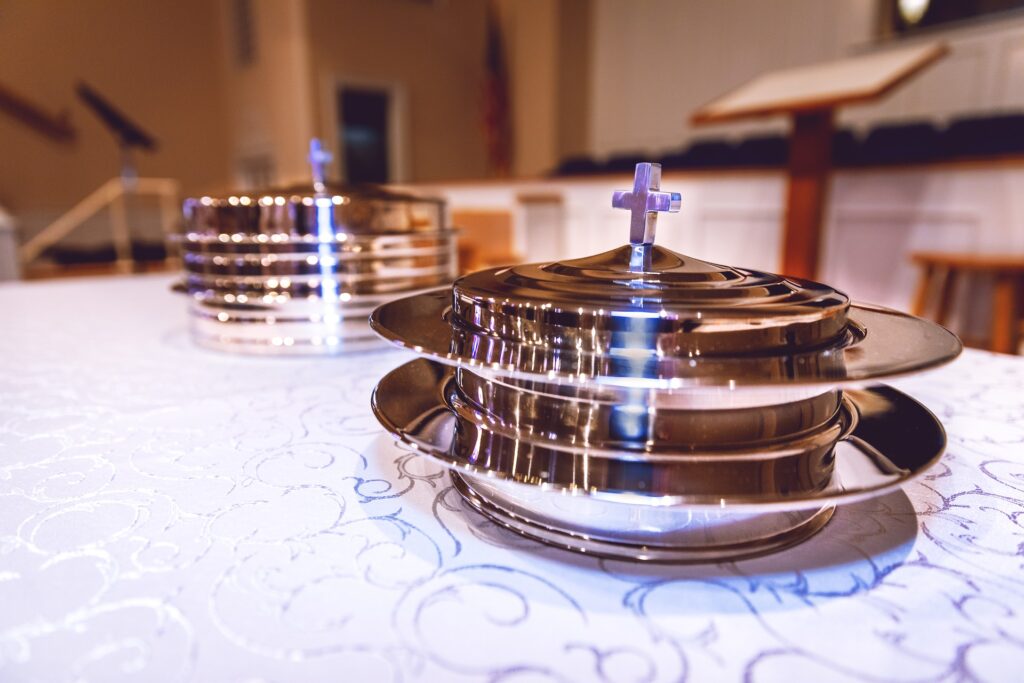
Names for the Lord’s Supper
We have no more important time of the week than when we gather around the Lord’s table with our brothers and sisters. The early church gathered for the purpose of sharing the Lord’s Supper with each other: “On the first day of the week, when we were gathered together to break bread, Paul talked with them” (Acts 20:7). The disciples didn’t break bread incidentally—because they were already together or because it was the Lord’s Day or because Paul urged them to do so with him because he was preparing to leave Troas—they assembled in that upper room for the very purpose of breaking bread. When we come together on the Lord’s Day, we come together not to hear a good sermon or to sing some touching songs or to be led in beautiful prayers or to give liberal sums; we come together for the very purpose of the Lord’s Supper.
In today’s fast-paced world, I fear that all too often we’re all guilty of rushing through communion so we can hurry to the restaurant. To help you take the bread and the wine in the most reverent manner, I wish to share with you four names found in Scripture for the Lord’s Supper.
Eucharist. I imagine most in the fellowship of Churches of Christ are unfamiliar with the term “Eucharist.” The word has its origin in the Greek text of Jesus’s gathering with his disciples. After he had offered the disciples the bread representing his own body, Jesus “he took a cup, and when he had given thanks he gave it to them, saying, “Drink of it, all of you” (Matt 26:27; 1 Corinthians 11:24 says Jesus gave the bread to the disciples after “he had given thanks”). The Greek term for “give thanks” is eucharisteō. Thus, calling the Lord’s Supper the “Eucharist” reminds one of the thanksgiving inherent in the Lord’s Supper. The Supper gives thanks to God for the sacrifice of Jesus. The Supper gives thanks to God for the salvation of our souls. The Supper gives thanks for the resurrection of the dead. The Supper gives thanks for the eternal home Jesus’s sacrifice brings.
Communion. The Lord’s Supper is a communion with the Lord’s death. “The cup of blessing that we bless, is it not a participation [literally “communion” in Greek] in the blood of Christ? The bread that we break, is it not a participation [“communion”] in the body of Christ?” (1 Cor 10:18). As we take the bread and the wine, we are participating—identifying with—in Jesus’s death and sacrifice.
Breaking Bread. The earliest Christians “devoted themselves to the apostles’ teaching and the fellowship, to the breaking of bread and the prayers” (Acts 2:42). Luke recorded that he and other disciples “gathered together to break bread” in Troas (Acts 20:7).
In the context of 1 Corinthians 10, the term “communion” refers to the participation of the Christian in Jesus’s death through which he obtains salvation. “Breaking bread,” on the other hand, points to the communion Christians share with one another. “Breaking bread” was the first-century Jewish euphemism for a meal, and their meals were extremely intimate and symbolized a shared life. When we come together and participate in communion, we’re saying we’re family, we’re loving one another, and we’re sharing our lives. It’s no wonder Paul told the Corinthian church to wait for one another before they ate of the bread or drank of the cup (1 Cor 11:33).
The Lord’s Supper. As Paul chastised the Corinthians for the farce they had made the remembrance of Jesus’s death and resurrection, he told them, “When you come together, it is not the Lord’s supper that you eat” (1 Cor 11:20). Oh, it should have been for them and may it ever be for us!
The communion is the Lord’s Supper, for he invites us to his table. It’s his supper, for he has chosen the meal. It’s his supper, for it’s done in his memory (1 Cor 11:24-25). It’s his supper, for the bread is his body and the cup his blood (Matt 26:26, 28). It’s his supper, for his body died and his blood was shed for our redemption.
When we come to the Lord’s Supper, the breaking of bread, the communion, the Eucharist, let us do so with reverence, in Jesus’s memory, with hearts full of thanksgiving, and in full fellowship with our family.
This article was originally written by Dr. Justin Imel, Sr., for the weekly newsletter at Church of Christ Deer Park in Deer Park, Texas.






One thought on “Names for the Lord’s Supper”